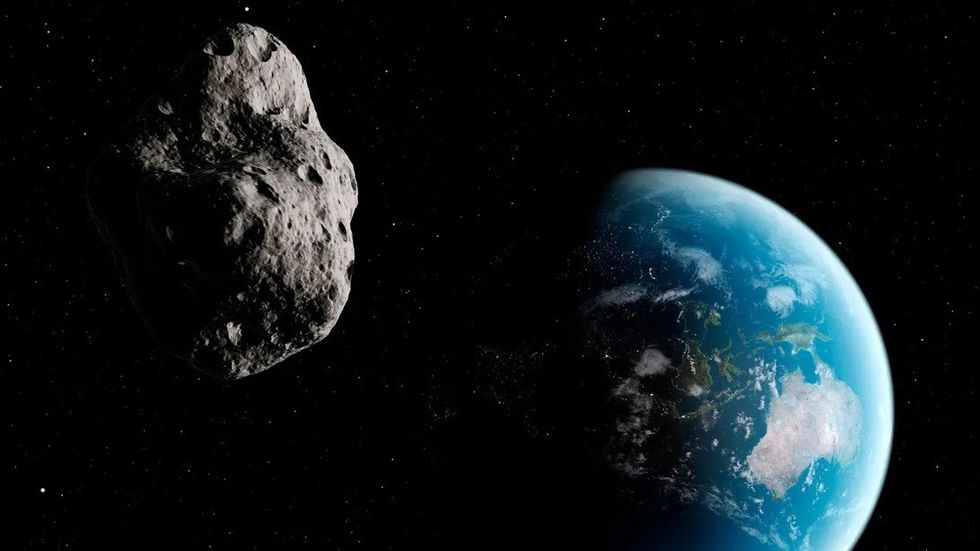'God of Chaos' asteroid will pass so close to Earth it will experience 'astroquakes'
Nas aims to study Apophis when it approaches Earth
Don't Miss
Most Read
Trending on GB News
A massive asteroid will experience earthquake-like tremors when it makes a historic close approach to Earth in 2029, according to new research.
The 340-metre asteroid Apophis, named after the Egyptian god of darkness and chaos, will pass within 32,000 kilometres of Earth on April 13, 2029.
Scientists predict the close encounter will trigger what they call "astroquakes" on the asteroid's surface due to Earth's gravitational pull.
While initially feared as potentially dangerous upon its discovery in 2004, researchers have now confirmed Apophis poses no collision risk to Earth for at least the next century.
 Earth's gravitational pull is expected to trigger 'astroquakes' on ApophisWIKIMEDIA COMMONS
Earth's gravitational pull is expected to trigger 'astroquakes' on ApophisWIKIMEDIA COMMONSA new study led by Ronald-Louis Ballouz from Johns Hopkins University Applied Physics Laboratory has simulated the effects of Earth's gravity on the approaching asteroid.
The research suggests that Apophis will experience significant surface changes during its flyby, which will bring it closer to Earth than many orbiting satellites.
The gravitational tidal forces are expected to cause tremors similar to earthquakes, potentially refreshing the asteroid's surface by exposing fresh layers beneath.
These "astroquakes" could trigger landslides across Apophis's surface, with computational simulations indicating that Earth's gravity will have a detectable effect on the space rock.
MORE LIKE THIS:The tremors are predicted to begin approximately one hour before Apophis reaches its closest point to Earth, continuing for some time afterwards.
The vibrations could be powerful enough to dislodge surface materials and even eject small rocks into space.
Scientists believe these disturbances could significantly transform the asteroid's appearance during its close encounter.
The research team's simulations suggest that the seismic events will be driven by short-term tides from Earth's gravitational pull.
These effects could help explain why some near-Earth asteroids appear to have younger surfaces than expected, showing less weathering than those remaining in deep space.
Nasa's OSIRIS-APEX mission will study these remarkable effects when it meets Apophis during its 2029 approach.
The spacecraft, previously used in the OSIRIS-REx mission to collect samples from asteroid Bennu, will observe Apophis for 18 months after its flyby.
The mission aims to analyse the gravitational interaction between Earth and Apophis in real-time.









